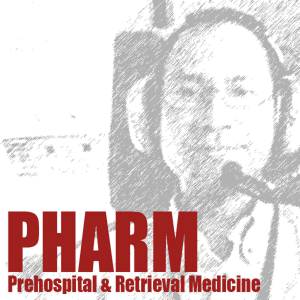
Remember the parable of the Good Samaritan from the Bible?
Was this the first description of prehospital care in history?
Nowadays being a Good Samaritan? For those of us who work in prehospital dedicated services this is the job. But what if you dont work in dedicated emergency services/ What if you normally work in a hospital or office yet during your normal daily life come across a prehospital emergency?
You have no formal emergency prehospital gear nor training yet you are the first on scene at an accident or medical crisis.
what are your legal obligations?
what are your ethical obligations?
Recently in West Australia a case from 2002 involving an off duty radiologist in a rural town and a car rollover was ruled upon by a medical tribunal.
Read about the case here
Rollover doctor conduct ‘improper’
The legal aspects of this case are well described in this blog post
Improper professional conduct when a doctor fails to render assistance at a motor vehicle accident
In Australia , Good Samaritan laws are codified to encourage members of public to render reasonable emergency assistance without fear of litigation. In the Northern Territory it is a criminal offence to “callously fail” to render such assistance if deemed reasonable and safe.
Read about Australian Good Samaritan laws here
A brief primer on Good Samaritan law for health care professionals
here in Australia where remote accidents are frequent, it is an essential part of social well being that we are expected to render emergency assistance if safe and reasonable and registered medical practitioners in particular are expected to provide emergency care if possible. This then brings into the discussion the role of any medical training or the need for specific prehospital training and equipment.
My wife and I have both been in prehospital emergencies when off duty , without any specific gear. yes we have special training and this helps. We have purchased specific prehospital gear for our cars.
But I would expect any one with medical training to provide some basic emergency care without any specific gear. A shirt can be used for life saving haemostasis. An airway can be cleared by simply positioning. Notably it is the mental preparation for such emergencies that is the key. In the recent WA case and others similar, people have cited their terror and panic that prevented them from rendering immediate care. As Cliff Reid teaches, maybe it is using our greatest simulator, our mind, to prepare ourselves for such emergencies, that is going to yield the greatest benefits in these unexpected but devastating prehospital tragedies.

Aw look, I agree completely with ‘getting stuck in’
..but equally, if the doctor bystander is unable to function effectively (through fear via ‘near miss’, through fear of assault or even [heaven forbid] through impairment due to alcohol), then should they be held to a higher standard than the lay public by virtue of being a doctor?
The WA tribunal says ‘yes’
I’d argue it’s not as clear cut as that. For those who have an interest or work in PHEC, then the art of ‘making things happen’ and using mental preparedness are tools for the armoury
But a female radiologist?
Who has just been involved in a ‘near miss’ and is unable to function due to ‘nerves’?
Who has been told not to approach members of the public in this isolated rural community due to fears of alcohol-related violence?
Who has no training in prehospital care?
Who has no kit to render first aid?
Who has no PPE or even basic lighting?
…hell, I;d want her to drive the ONE MINUTE to local police and raise alarm, then let the experts take over – with oxygen, splints, dressing, drugs etc
Not a lone untrained doctor with no kit. Especially if in so doing, care is suboptimal and DELAYS access to emergency services.
If the police had been a 30 min drive away – yes, ‘stay and assess/play’…
…but in this case, raise the alarm seems sensible
By the same token, the WA tribunal would have me crossclamp the aorta if a AAA ruptured at a party and I was pissed. Regardless of my impairment, regardless of my lack of kit, the WA tribunal is saying that my status as a doctor means I must deliver the same care as the ‘expert’ in the tertiary hospital down the road.
It’s nuts.
Tim, i appreciate your comments and I personally regard the ruling as unfair
but
I dont believe the tribunal are expecting dr dekker or you to provide emergency care beyond your skillset nor to endanger yourselves in process.
no one is expecting heroics.